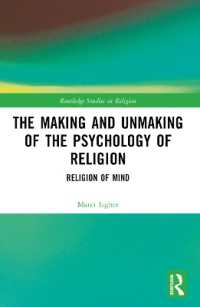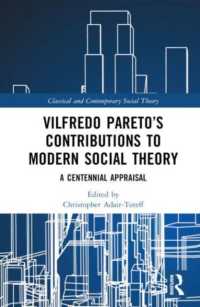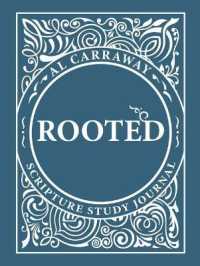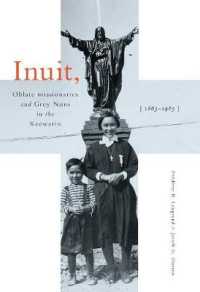- ホーム
- > 洋書
- > ドイツ書
- > Humanities, Arts & Music
- > Linguistics
Description
(Text)
This is the first monograph devoted to José F. A. Oliver, the prolific poet, essayist, and translator born in Hausach, Germany, in 1961. The recipient of prestigious awards for poetry, Oliver servesas the current president of the PEN Centre Germany. Through close readings of poems and essays, this study focuses on Oliver's intricate yet lyrical aesthetics and the inspiration he draws from fellow poets, primarily Federico García Lorca and Friederike Mayröcker. It delves into major motifs and themes, emphasising the self's encounter with otherness in identity, homeland, and language, and explores the transformative tropes of the city, love, and death. This inquiry includes duende , the elusive spirit that animates flamenco, the transcendent poetics of 'solace', and the lingual, cultural, and post-identitarian hybridity evolving from a nomadic mindset. The monograph also addresses the flâneur's attempt at reading the modern metropolis, Heimat 's conundrum of (violent) exclusion and (viable) inclusion, the notion of love as an 'untouchable closeness', the salvific trope of Orpheus, and the polyphonic ethics of multilingualism. Among others, this study relies conceptually upon Bernhard Waldenfels's phenomenology of foreignness, Rosi Braidotti's theory of nomadism, Plato's disquisition on love, Roland Barthes's explication of mourning, Homi Bhabha's notion ofa 'Third Space', Franz Hessel's paradigm of flânerie, and the allegory of the Dance of Death and its gendering of death figures. Oliver's use of unconventional poetic devices pushes the boundaries of language and readability. With polyvalent lyric interventions, he confronts homogeneity and discrimination, urging readers to exercise their political consciousness. This study is for students of German avant-garde poetry and readers interested in questions raised by nomadic theory and topics such as intersectionality and multilingual identity.
(Author portrait)
Franz R. Kempf is Professor Emeritus of German Studies at Bard College.Numerous publications








